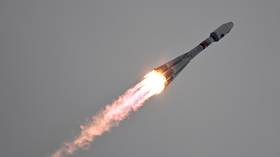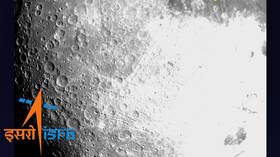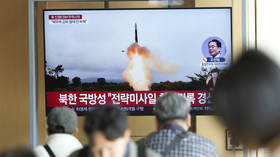Russia issues positive update on historic lunar mission

Russia’s Luna-25 probe is heading toward the Moon after successfully leaving Earth’s orbit, state space agency Roscosmos said on Friday. The lunar mission is Russia’s first in almost 50 years, and was launched earlier in the day from the Vostochny Cosmodrome in the far-eastern Amur Region.
“After separation from the Fregat booster stage, the automatic probe was taken under control,” Roscosmos said in a brief statement. All the probe’s systems are functioning properly, with ground control maintaining stable communications, the space agency added.
The separation of the Fregat booster stage marks the conclusion of the crucial first phase of the mission. The module fired its engines several times, setting course for the probe to reach the Moon.
Luna-25 is the first Moon mission to be launched in modern Russia, and the probe was built entirely from domestic components. The mission takes its name from the Soviet-era ‘Luna’ program, which launched 24 probes between 1958 and 1976.
If successful, the probe is set to become the first mission to land in the Moon’s rugged south polar region. All previous probes have touched down in the equatorial region, which is considerably easier to reach. Luna-25 will take samples of regolith – broken rock and dust – as well as run long-term experiments at the landing site, according to Roscosmos.
The mission is expected to touch down on the Moon by August 21, two days before India’s Chandrayaan-3, which is already in lunar orbit and is also destined for a polar landing. The previous attempt to land in the Moon’s polar mountains was undertaken by India back in 2019, resulting in the loss of Chandrayaan-2 and its Vikram lander, which crashed into the satellite’s surface.












